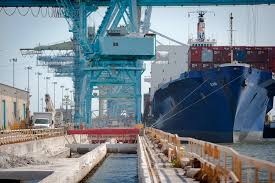Introduction
If your company operates offshore assets and in particular Offshore Marine Terminals, Fixed Platform infrastructures with subsea pipelines, Floating Production Storage & Offloading (FPSO’s) and/or is entering into FSRU/FLNG assets with LNG Gas carriers and/or Oil tankers berthing at single buoy mooring terminals, then this training seminar is for you.
This interactive, applications-driven 5-day training seminar is focused on the key design, operability and life cycle asset integrity management considerations for constructing, operating an Offshore Asset such as a Marine Oil or Gas Terminal. The training seminar additionally addresses ageing asset infrastructure, life extension modeling with safety and regulatory guidance.
This training seminar will highlight:
- Key design & construction guidelines for building & operating an offshore marine asset
- How to manage ageing infrastructure, structural integrity monitoring, asset insurance, marine warranty surveillance Life cycle risk management
- Use of latest technologies in real-time data management, condition performance monitoring technologies
- Focusing on design life cycle management, maintaining a stable asset risk profile with good reliability, production availability, Uptime performance as per ISO 20815 criteria
- Managing Asset OPEX Budgets, Knowledge Management tools and skills set transfer to a multi-disciplined, competent workforce
Objectives
By the end of this training seminar, participants will be able to:
- Gain a better understanding and appreciation of the various International Asset Regulatory Guidelines and manage variances in environmental conditions, codes and standards
- Interpret meaningfully and critically, project and asset information to assist in each of the key stages
- Obtain a practical approach to understanding the requirements to obtain a DNV and/or other Independent 3rd Party Design Verification Certificate such as those issued by ABS and or Bureau Veritas or Lloyds Register Integrity Management
- Learn the regulatory requirements and integrated competence matrices as stipulated by SIGTTO for LNG-LPG assets and risk management
- Plan, Act and Do things in a timely manner to maintain your assets integrity in a fitness for purpose, operating condition
Training Methodology
Participants to this training seminar shall receive a thorough training on the subjects covered by the outline with the Tutor utilising a variety of proven adult learning teaching and facilitation techniques. Training methodology includes:
- A variety of proven adult learning techniques shall be used to ensure maximum understanding, comprehension and retention of the information presented
- The daily workshops will be highly interactive and participative. This involves regular discussion of applications with the seminar instructor, as well as hands-on exposure to latest techniques using some supportive project and operational site video presentations
Delegates are strongly encouraged to bring operational experiences gained from their own work into the seminar workshops. This adds greater relevancy to the content. Emphasis is also placed on the periodic changes of International regulations and the effectiveness of the “management of change” procedures.
Who Should Attend?
This training seminar is suitable to a wide range of professionals but will greatly benefit:
- Asset Engineers, Marine Engineers, Marine Operations, Field personnel involved with day to day operations of such plant and equipment who typically encounter marine vessels and operating plant in their day to day work environment
- Professionals in marine facility, management support roles
- Those who seek to derive greater understanding of Design and through Life Cycle Asset Management of Offshore Marine Terminals
- Marine Operations Superintendents, HSE Personnel subject matter experts (SME) for operational aspects of “ship to ship” transfer of LNG, in support of both European (EE) and worldwide terminal development projects, market access, and commercial efforts
SEMINAR OUTLINE
DAY 1
Design and Construction Codes for Marine Terminals - Offshore Assets
- Updates on various International codes, standards, regulations will be presented
- Recommended best practices will be tabled such that you can introduce updates and or possibly identify new management performance Key Performance Indicators (KPIs) that can be used on your assets, regionally specific criteria, including considerations for asset life cycle extensions.
- Design Layouts, Plant optimization
- Stage Gate Approval process and reaching a Design Freeze aligned with project financial investment decision stage gates, ageing asset life extension regimes
- Use of Smart marine plant design to life cycle documentation process beneficial for project handover to asset operations teams
DAY 2
Asset Management Responsibilities and Life Cycle Phased Inspection & Planned Preventative Maintenance Regimes
- Various workshop sessions across design life cycle integrity criteria
- Structural Integrity
- Inspection regimes
- Capturing key technical, operating performance standards, safety critical elements, integrity levels
- Lean Design Life Cycle Concept
- Process System safety improvements
DAY 3
Lessons Learnt and the Knowledge Management Process
- Mitigating risks from ageing structural integrity
- Use of Pipeline Leak detection devices
- Emergency pipeline repair systems (EPRS) strategies and availability of spare parts
- Marine Warranty Surveillance (MWS) inspections and vessel Classification reviews
- Hook Up and Commissioning issues
- Incidents and or Accidents from Heavy Lifts
- Planning for Asset Decommissioning
DAY 4
Life Cycle Certification Updates, Periodic Life Cycle Asset Risk Based Inspection (RBI) and Life Extension Studies in Ageing Infrastructure
- Demonstration by worked examples and use of dynamic asset management data bases with condition performance monitoring support tools
- How to develop asset risk models for repairs and necessary structural upgrades
- Considerations for phased de-commissioning activities
- Environmental regulatory reporting across your various asset sites
- Storage and retention of key documents, electronic filing and had copies
DAY 5
Offshore Installation Management
- Safety Leadership skills and key asset performance measures
- Regulatory reporting of safety critical elements (SCE) and performance standards (PS) into SAP and other enterprise business management systems
- Understanding of how to deliver robust design, construction and asset life cycle management operating expenditure (OPEX) budgets
- Design Construction Regulations, Computerised Maintenance Management Systems (CMMS) appropriate ISO codes and standards refresher
- Emergency Management and Major Accident Prevention Hazard analysis practices and wider operating parameter considerations

